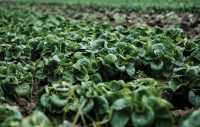COVID-19: Practical guidance for our rural and farming clients #11
As we begin to emerge out of lockdown it’s important that farmers and rural business owners start thinking ahead and plan for the potential pitfalls around the knock-on effect of the COVID-19 pandemic.
Sound business advice and the key to business resilience will be to address challenges head on and it all starts with planning. Over any other government support, the Self-Employment Income Support Scheme (SEISS) has been the scheme that has piqued the interest of farmers, this is understandable given its importance to the self-employed heavy agricultural work place. In this insight we answer some of the specific points raised by our farming clients claiming support via the SEISS. Please do call Old Mill if you want to discuss any of these points further.
Another area receiving increased attention from our clients is planning for the future, and, in this newsletter, we start this process by exploring the five key dates for farmers and their cashflow over the next 12 months.
As ever, if you have any financial or strategic business questions on farming and rural business-related matters, then we are the specialists on hand to help.

20th May 2020
-
Andrew Vickery See profile
Self-Employment Income Support Scheme (SEISS) – your questions answered
If your tax return is late, amended or under enquiry
If you didn’t submit your Self-Assessment tax return for the tax year 2018 to 2019 on or before 23 April 2020 you will not be able to claim. Claims based on late returns submitted between 26 March 2020 and 23 April 2020 will be subject to additional anti-fraud checks by HMRC.
When working out your eligibility or amount of the grant HMRC will not take into account Self-Assessment tax returns for the tax years 2016 to 2017 or 2017 to 2018 if they are submitted after 23 April 2020.
HMRC will use data on the tax returns already submitted to identify those eligible to claim.
When working out your eligibility or amount of the grant HMRC will not take into account any changes made to submitted returns after 6pm on 26 March 2020.
HMRC will also only use the information in your original return if your tax return:
- is under enquiry
- has been the subject of a contract settlement
If you’re a member of a partnership
Each partner in your partnership will need to make a claim based on their own circumstances.
HMRC will work out your eligibility based on your share of the partnership’s trading profits.
If the partnership rules require the grant to be paid into the partnership pot, the partnership should give the full grant back to you.
If you claim averaging relief
If you’re a self-employed farmer, HMRC will use the amount of profit before the impact of the averaging claims to work out:
- if you can claim the grant
- how much grant you will receive
More answers for questions about SEISS as well as other government grants can be found in the COVID-19 hub on our website.
Extension of time limits to appeal HMRC tax decisions
HMRC has extended the timeframe in which you can appeal against a tax decision on direct tax (for example, income tax) or indirect tax (for example VAT, excise duty, customs duty), but only if you have been affected by COVID-19.
HMRC will give those impacted an extra three months to appeal any decision dated February 2020 or later, compared to the usual 30 days given to respond.
Guidance published by HMRC said consumers and businesses affected by the COVID-19 crisis should send their appeal as soon as they can and, if needed, explain the delay in returning the appeal form was due to COVID-19.
Deadline alert for Coronavirus Job Retention Scheme application
The deadline for CJRS (the so called ‘Furlough Scheme’) applications to receive payment by 31 May is midnight today (Wednesday 20 May).
The five key dates for farmers and cashflow over the next 12 months
Last week’s update gave a quick summary of the key dates farming and rural businesses should be aware of in terms of cash flow. Here we explain these dates in more detail and why you should be aware of them for your own business.
1 October 2020 / 1 January 2021
Most farming UK companies are December or March year-ends. For December year-ends, 1 October is the due date for your Corporation Tax payment. If you are a March year-end, it’s 1 January.
The COVID-19 crisis hadn’t kicked in back in December and was just taking hold in March, so profits were probably higher then and the tax bill most likely larger. Since then, a combination of lockdown, increased costs, limited sales and any redundant diversified income may have depleted the cash generated in your last financial year and it may no longer be there to pay the tax.
For arable December year-ends, who have just gone through major contracting costs, cash could be particularly tight.
Currently, this is three or six months away, so there is time to plan and manage cash if you can. If it isn’t possible (to pay your tax bill) from cash flow, then you may be able to agree a Time To Pay arrangement with HMRC to spread it over a number of months.
31 January 2021
The end of January is of course the payment date for your income tax. This is a personal liability, not a company one, but for many farmers, their income all comes from the business so there is usually a knock-on effect.
There are some farmers who have taken advantage of the government deferral scheme to defer the 31 July 2020 payment on account meaning the amount that will be due on 31 January 2021 will potentially be that much higher. Even if you have deferred or not, the January 2021 payment will be based on your income to 5 April 2020, which was pre-crisis and may well be higher than your income for the tax year 5 April 2021. It may therefore be possible to reduce the payment on account that needs to be made on 31 January alongside the 2019/20 final payment. Talk to your accountant about this.
Ideally, get your tax return done as soon as possible so that you know what the amount is. Although many farmers leave it until close to the deadline, it’s actually possible to do your return any time after 5 April!
31 March 2021
One of the first things the Chancellor announced was the deferral of the VAT payment falling due during the lockdown period. This is a deferral not a cancellation and so therefore it becomes due for payment on 31 March 2021.
While the agricultural industry is relatively unaffected by COVID-19 directly, this date may have the potential to be one of the most critical dates for your suppliers with insolvency and cash both potential issues. The knock-on effect on this will be your ability to source your supplies easily and at the same price. It’s more than nine months away, you have time to plan, put money aside or arrange facilities to negate any supplier issues that may arise.
Rent Quarter Days
Traditionally in the UK, quarterly rent is payable on 25 March, 24 June, 29 September and 25 December.
If you rent your farm or other land and pay rent quarterly, then three of these quarter days closely coincide with September 2020, December 2020 and March 2021.
If your forecasts indicate that these dates could be a problem for your business, now might be the time to start negotiating with your landlord to switch to monthly rentals to smooth the cash flow effect.
1 May 2021
Finally, the CBILS (Coronavirus Business Interruption Loan Scheme) and BBLS (Bounce Back Loan Scheme) started to be advanced in April and May 2020, mostly with 12 month repayment holidays.
We have particularly seen an uptake from farmers on the Bounce Back Loan Scheme and those 12 month anniversaries are going to come around in April and May next year and repayments are going to start, probably on the 1 May.
The CBILS loans were assessed for affordability, often assuming a return to 2019 trading levels by the time the loan payments commence but BBLS loans were issued with no checks on affordability at all.
You understand your own farming business and should have a good idea on the peaks and troughs of cash flow over the year, but these are extraordinary times and, more than ever, you should be forecasting your business and cash flow to navigate through the times ahead.
Old Mill rural ‘Virtual Breakfast’ Q&A
Join us this Friday (22 May) live at 9am as we welcome Rural Accountant and Director, Paul Neate who works out of our Wiltshire office, and Rural Chartered Financial Planner, Stuart Coombe.
Alongside all queries about the ongoing COVID-19 financial support schemes, this week we will be discussing the availability of cash in the farming business and what to do with it.
- How safe is your money?
- Are your savings set up correctly and in the right places?
- Do you need to have instant access to these savings?
- Should you take advantage of the government loans for low interest money?
- Is now the time to look at planning for retirement or succession?
- What tax implications have started to be realised within the COVID-19 environment?
You are welcome to submit questions during the event using the question box on the right of your screen or beforehand to marketing@om.uk.
Click here to join our ‘Virtual Breakfast’ this Friday 22 May at 9am.
The link will direct you to a secure Microsoft Teams page. Here you can click the box ‘watch on the web instead’ which will give you entry without having to download any software.
If you have any problems accessing the event, please let us know by contacting marketing@om.uk.
If you missed last week’s ‘Virtual Breakfast’ you can watch it back
During the breakfast we talked about:
- New grant for dairy farmers
- New business enterprises for farmers, tax implications and SEED Enterprise Investment Scheme
- New announcements on Coronavirus Job Retention Scheme, Self-Employment Income Support Scheme/Small Business Support Scheme/ Bounce Back Scheme
- Tax investigations
- Tax implications from the sale of a farm.
For more information, or if you have any questions about any of the above, please contact your Old Mill adviser or email enquiries@om.uk.

